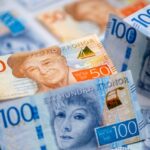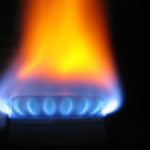U.S. stock-index futures fell, after the Standard & Poor’s 500 Index jumped the most in almost two weeks, as the government shutdown entered a second day with no talks expected today between the White House and Congress.
Standard & Poors 500 futures expiring in December lost 0.5% to 1,680.8 at 8:00 a.m. in New York. The benchmark gauge for U.S. equities climbed 0.8% yesterday, after falling for two trading sessions. The S&P 500 has still surged 19% so far this year. Future contracts on the Dow Jones Industrial Average decreased 100 points, or 0.7%, to 15,020 today.
“If the shutdown is only for one or two days, it’s not a problem, but if you have a long discussion around the budget, it could be a problem,” Guillaume Duchesne, an equity strategist at BGL BNP Paribas SA in Luxembourg, said by telephone to Bloomberg. “You can expect some consolidation in markets because the rally was impressive during the summer.”
The first day of the shutdown is marked by no talks scheduled between the White House and Congress, making it more likely the standoff would merge with the fight over raising the U.S. debt limit later this month to make sure the government can pay all its bills.
Companies in the U.S. added 180,000 people to payrolls in September, according to a poll taken between Bloomberg analysts before a report from the ADP Research Institute due at 8:15 a.m. EDT.
In corporate news, Alcoa sank 2.9% to $7.93. Deutsche Bank reduced its recommendation to “sell” from “hold”, supporting its move by lower aluminum prices outlook. Shares of the company could fall 33% to as low as $5.50 in the next year, according to the firm, which also said Alcoa should consider spinning off its primary metals business.
Exxon Mobil, the world’s biggest energy company by market value, decreased 0.4% to $85.63 in pre-market New York trading.
Global Payments jumped 6.8% to $54.14. The bank-card processor forecast cash earnings in 2014 will be as much as $4.05 a share after earlier predicting profit will be no more than $4. The company also reported first-quarter cash earnings were $1 a share, exceeding the 94-cent profit estimated by analysts.





